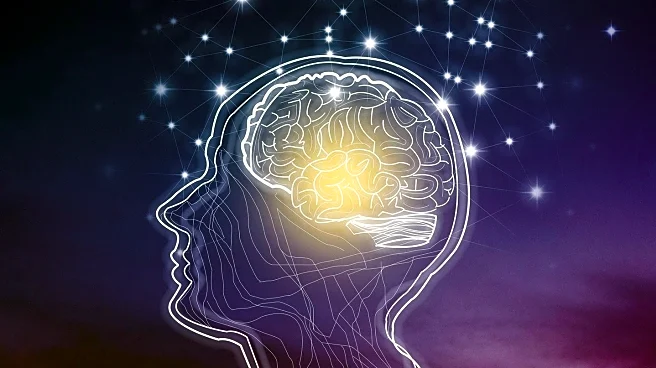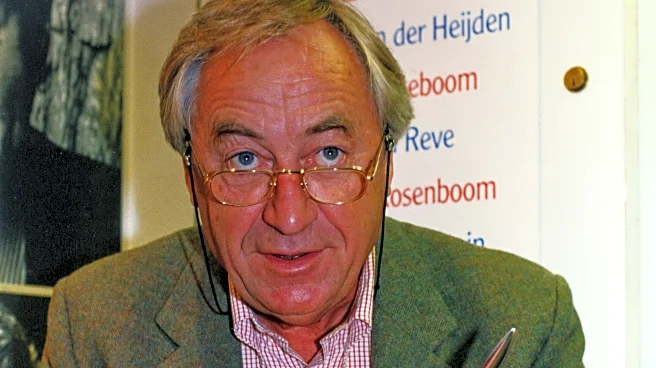What's Happening?
Recent research published in Scientific Reports has explored the effects of creatine supplementation on cognitive function during sleep deprivation. The study involved 15 healthy volunteers who were subjected to 21 hours of partial sleep deprivation. Participants were divided into two groups, with one receiving a high dose of creatine and the other a placebo. The study found that creatine helped maintain normal levels of phosphocreatine and ATP in the brain, which are crucial for energy metabolism. Participants who took creatine performed better on tasks measuring working memory and processing speed compared to those who received the placebo. This research adds to the growing body of evidence supporting creatine's potential benefits for cognitive and mental health.
Why It's Important?
The findings of this study are significant as they suggest that creatine could offer quick-acting support for individuals experiencing sleep deprivation, such as shift workers and new mothers. Sleep deprivation is known to negatively impact various aspects of health and daily life, and creatine's ability to sustain brain energy levels could mitigate these effects. The study also highlights the potential of creatine as a supplemental treatment for cognitive health, which could be particularly beneficial for those suffering from depression or memory-related issues. As creatine gains recognition beyond bodybuilding circles, its broader applications in mental health and cognitive performance are becoming increasingly relevant.
What's Next?
Further research is needed to explore the long-term effects of creatine supplementation on cognitive health, particularly in larger and more diverse populations. Additionally, studies could investigate the optimal dosage for cognitive benefits, as the dose used in this study was higher than typical recommendations for sports performance. As interest in creatine's mental health benefits grows, it may lead to more widespread use and acceptance of the supplement in various health contexts.











